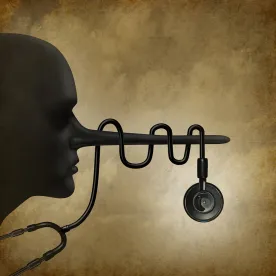Last week, the Office of Inspector General (OIG) for the Department of Health and Human Services (HHS) issued Advisory Opinion No. 22-09 (AO 22-09), which addresses a proposed arrangement pursuant to which the operator of a network of laboratories (the Requestor) would compensate hospitals for certain specimen collection services related to testing performed by the Requestor (the Proposed Arrangement). The OIG ultimately concluded that the Proposed Arrangement poses a risk of fraud of abuse under the federal Anti-Kickback Statute (AKS). In this post, we will cover the OIG’s rationale for this decision, as well as some of the history of the OIG’s scrutiny of specimen collection arrangements.
Highlights of OIG’s Prior Guidance on Specimen Collection Arrangements
Over the past three decades, the OIG has considered arrangements for specimen collection services between laboratories and referring providers on several occasions. In fact, one of the OIG’s first Special Fraud Alerts covered this topic. In 1994, OIG issued Special Fraud Alert: Arrangements for the Provision of Clinical Laboratory Services, in which it allowed laboratories to place phlebotomists in the offices of referring physicians, as long as the phlebotomists did not provide any additional services for the physician’s office because such services could be remuneration to the referring physician that could induce referrals.
In 2005, the OIG published Advisory Opinion No. 05-08 in which the OIG addressed whether laboratories could provide free blood collection kits and pay a per-patient amount to ordering physicians who perform blood draws in their office. The OIG determined that the arrangement posed a “substantial risk that the Lab would be offering the blood draw remuneration to the physicians in exchange for referrals to the Lab” and thus posed a risk of fraud and abuse under the AKS. The OIG then issued another Special Fraud Alert in 2014 addressing remuneration paid by laboratories to referring physicians for blood specimen collection, processing, and packaging services. The OIG expressed concern over such agreements, regardless of whether they carve out federal health care program patients, particularly when the payment exceeds fair market value for the services or when the physician is also receiving payment for the same service from a third party payor. The OIG implied that the latter arrangement is a per se violation of the AKS because Medicare covers the services as part of the physician’s office visit. One year later, Health Diagnostics Laboratory (HDL) entered into a settlement agreement with the U.S. Department of Justice (DOJ) for almost $50 million related to alleged kickbacks paid to referring physicians, including the payment of processing and handling fees in exchange for referrals. HDL ultimately filed for bankruptcy and thus did not pay the entire settlement amount, but DOJ later obtained a sizable False Claims Act judgment at trial in its case against HDL’s Chief Executive Officer and the principals of HDL’s independent sales organization.
The OIG’s findings in AO 22-09 should be considered in light of the enforcement history that preceded it and enforcement authorities’ (arguably unjustified) negative perception of laboratories as a general matter.
Factual Background of AO 22-09
In AO 22-09, the Requestor stated that it would contract with hospitals nationwide (the Contract Hospitals) and would pay the Contract Hospitals on a per-patient-encounter basis to collect, process, and handle specimens that are then sent to Requestor’s clinical laboratories for testing (the Services). Requestor would bill third party payors, including the federal health care programs, for the testing. The Services would be performed by a phlebotomist working on behalf of the Contract Hospital. The Contract Hospitals would receive payment only if the individual who presents with a test order is not currently an inpatient or registered outpatient of the Contract Hospital. If the individual’s test order does not specify a performing laboratory, the Contract Hospital would be able to choose the laboratory.
In an effort to demonstrate substantial compliance with the personal services safe harbor under the AKS, the Requestor certified that: (1) the Proposed Arrangement would be memorialized in a written agreement covering all of the services to be provided and including a term of at least 1 year; (2) the Services would not exceed those that are reasonably necessary to accomplish the commercially reasonable business purpose of the Proposed Arrangement; and (3) the per-patient-encounter fee would be consistent with fair market value for the Services in an arm’s-length transaction. Contracts between the Contract Hospitals and the Requestor would prohibit the Contract Hospitals from separately billing any payors or patients for the Services. Finally, under the Proposed Arrangement, each Contract Hospital would represent and warrant in the contract that none of the Contract Hospital’s employed physicians, contracted physicians, or physician practices or medical groups that may be owned by or under common ownership with the Contract Hospitals (the Affiliated Practices) would be required or directed to refer to Requestor or would receive any remuneration from the Contract Hospital or any referrals to Requestor.
Legal Analysis of AO 22-09
According to the OIG, the Proposed Arrangement would implicate the AKS because it involves compensation paid by a laboratory to a party that can make referrals to the laboratory for testing, or otherwise arrange for the laboratory to furnish testing that would be reimbursable, in whole or in part, by a federal health care program. The safe harbor for personal services would not apply to the Proposed Arrangement because the specimen collection fee methodology would take into account the volume or value of referrals or other business generated for which payment may be made in whole or in part under a federal health care program. The OIG therefore considered the facts and circumstances of the Proposed Arrangement and first noted that it “warrants careful scrutiny because: (i) in [the OIG’s] experience, laboratory services may be particularly susceptible to the risk of steering; and (ii) the Proposed Arrangement would involve a “per-click” fee structure…, which generally is inherently reflective of the volume or value of referrals or business otherwise generated between the parties.”
The OIG ultimately concluded that the per-patient-encounter fee could induce Contract Hospitals to refer specimens to Requestor, including testing that may be reimbursable, in whole or in part, by a federal health care program. One of the OIG’s concerns is that a Contract Hospital could choose to refer to Requestor individuals who are federal health care program patients who present with a test order that does not specify a performing laboratory. In the OIG’s view, the per-patient-encounter fee for specimen collection constitutes a “financial incentive to direct any such specimens to Requestor….” As those affiliated with the laboratory industry know, this scenario is unlikely to occur very often because physicians typically have relationships with performing laboratories and in many cases must choose a particular laboratory that is in-network with the patient’s insurer.
In addition, the OIG observed that Contract Hospitals would have an incentive to encourage their physicians and Affiliated Practices to order laboratory services from Requestor because the Contract Hospitals could use the specimen collection fees to offset the costs they incur to employ or contract with specimen collection personnel who serve all patients, including those carved out of the Proposed Arrangement. Even though the contract between the parties would require the Contract Hospitals to represent and warrant that they would not require or direct their physicians and Affiliated Practices to refer to the Requestor, the OIG inexplicably concluded that this and other compliance safeguards would “not overcome the risk of inappropriate steering to Requestor given the financial incentive inherent to a per-patient-encounter compensation methodology.”
Key Takeaways
Laboratories bear the sizable burden of arranging for the collection of specimens from patients located nationwide. Unless a laboratory has the financial means to establish its own network of patient service centers (which is rarely the case), it must rely on other, unaffiliated providers to collect on their behalf, and those providers understandably expect payment for their services. After the Special Fraud Alert of 2014 made clear that laboratories could not compensate referring physicians for specimen collection, many physicians refused to provide specimen collection services. Some laboratories thus had no choice but to contract with other providers, such as hospitals, urgent care centers, and, in some cases, other laboratories. With the issuance of AO 22-09, the OIG has all but foreclosed the option of contracting with hospitals for specimen collection, unless the laboratory is certain that the hospital could not and would not refer, or influence referrals, to the laboratory. While AO 22-09 noted that the specimen collection fees would only “generate prohibited remuneration under the [AKS] if the requisite intent were present,” the OIG pointed out that a payment can violate the AKS if “even one purpose” is to induce or reward the referral of federal health care program business.
Laboratories thus should proceed with caution when considering an arrangement involving payment for specimen collection fees. If the party providing specimen collection services refers or can refer to the laboratory, whether directly or indirectly, compliance risk should be carefully considered given the OIG’s view of the Proposed Arrangement.





 />i
/>i
